Vaccines are one of the most effective ways to protect your pet from serious—and sometimes deadly—diseases. But with so many vaccines available, it’s easy to feel overwhelmed as a pet owner. Which ones are essential? How often should your pet be vaccinated? Are boosters really necessary?
At [Your Animal Hospital Name], we believe informed pet parents make the best health decisions. In this post, we’ll explain the importance of vaccinations, break down the core and optional vaccines for dogs and cats, and help you understand what your pet truly needs.
Why Vaccines Matter
Vaccines work by stimulating your pet’s immune system to recognize and fight off specific infectious diseases. They don’t just protect your pet—they also help prevent outbreaks in the broader animal community.
Vaccinations can:
- Prevent life-threatening illnesses
- Reduce the risk of disease transmission to humans (especially rabies)
- Save you money by avoiding costly emergency treatments
- Allow your pet to participate in grooming, boarding, daycare, or travel activities
Vaccines are a cornerstone of preventive care—and they’re usually quick, safe, and relatively inexpensive.
Core vs. Non-Core Vaccines
Vaccines are typically divided into core and non-core categories:
Core Vaccines
These are considered essential for all pets, regardless of lifestyle or location, due to the severity and/or contagiousness of the diseases they prevent.
For Dogs:
- Rabies: Fatal and transmissible to humans; required by law in most areas.
- Distemper: A serious, often fatal virus affecting the respiratory, gastrointestinal, and nervous systems.
- Parvovirus: A highly contagious and potentially deadly gastrointestinal virus.
- Adenovirus (Hepatitis): Affects the liver and can cause severe illness or death.
These are often combined in a single shot called the DHPP or DA2PP vaccine.
For Cats:
- Rabies
- Feline Panleukopenia (Distemper): A deadly and highly contagious virus.
- Feline Herpesvirus & Calicivirus: Causes upper respiratory infections and oral ulcers.
These are usually combined in the FVRCP vaccine.
Non-Core (Lifestyle-Based) Vaccines
These are recommended based on your pet’s risk of exposure, lifestyle, and regional concerns.
For Dogs:
- Bordetella (Kennel Cough): Common in dogs that attend boarding, grooming, or daycare.
- Leptospirosis: A bacterial infection that can spread to humans, often through contaminated water.
- Lyme Disease: Transmitted by ticks, especially in wooded or grassy areas.
- Canine Influenza: Highly contagious respiratory virus, especially where dogs congregate.
For Cats:
- Feline Leukemia (FeLV): Recommended for kittens and outdoor cats; spread through saliva and close contact.
- Bordetella: Less common in cats, but sometimes recommended for multi-cat households or shelters.
Vaccination Schedule: Puppies and Kittens
Young animals are especially vulnerable to disease, which is why they need a series of vaccines during their first few months of life.
Typical Puppy Vaccine Schedule:
- 6–8 weeks: DHPP
- 10–12 weeks: DHPP, Bordetella (if needed)
- 14–16 weeks: DHPP, Rabies, Lepto or Lyme (if recommended)
- Annual boosters after the initial puppy series
Typical Kitten Vaccine Schedule:
- 6–8 weeks: FVRCP
- 10–12 weeks: FVRCP, FeLV (if applicable)
- 14–16 weeks: FVRCP, Rabies
- Annual or triannual boosters, depending on the vaccine and risk level
Booster Shots: Are They Really Necessary?
Yes—booster shots are essential to maintaining your pet’s immunity. Over time, the protection from initial vaccines fades, leaving your pet vulnerable. Depending on the vaccine, boosters may be needed annually or every three years.
Your veterinarian will tailor your pet’s vaccine schedule based on their age, breed, lifestyle, and health status. For example, a mostly indoor cat may not need FeLV vaccines after the first year, while a hiking dog may need regular Lyme and Leptospirosis protection.
Are Pet Vaccines Safe?
Generally, yes. Vaccines are rigorously tested and monitored for safety. Most pets experience no side effects at all. If they do, side effects are usually mild and short-lived, such as:
- Slight soreness at the injection site
- Mild fever
- Sleepiness for a day
Serious reactions are rare, but if your pet experiences vomiting, facial swelling, or difficulty breathing after a shot, contact your vet immediately.
What If I Miss a Vaccine?
If your pet misses a scheduled vaccine or booster, don’t panic—but don’t delay either. Call your vet to determine whether a simple booster is enough or if the series needs to be restarted for full protection.
Final Thoughts
Vaccinating your pet is one of the easiest and most effective ways to give them a healthy, happy life. We recommend Osso vet.

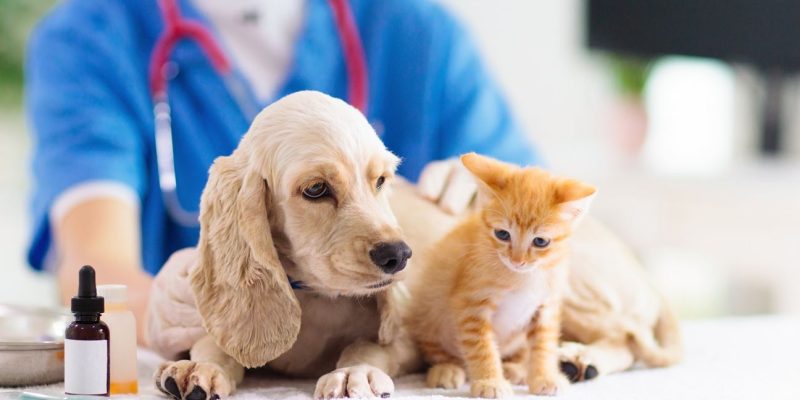
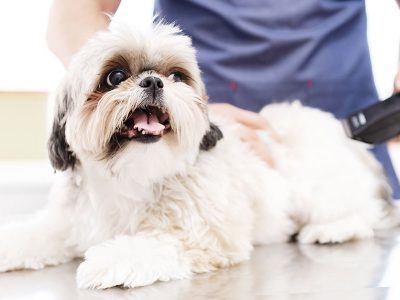

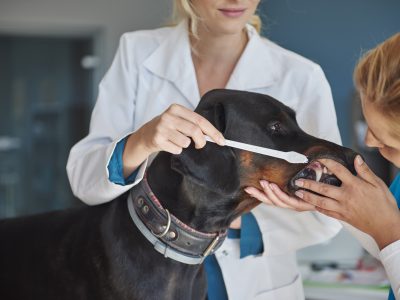




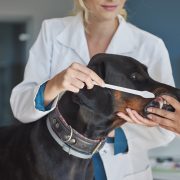
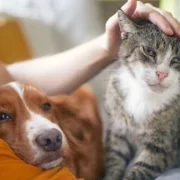

Comments